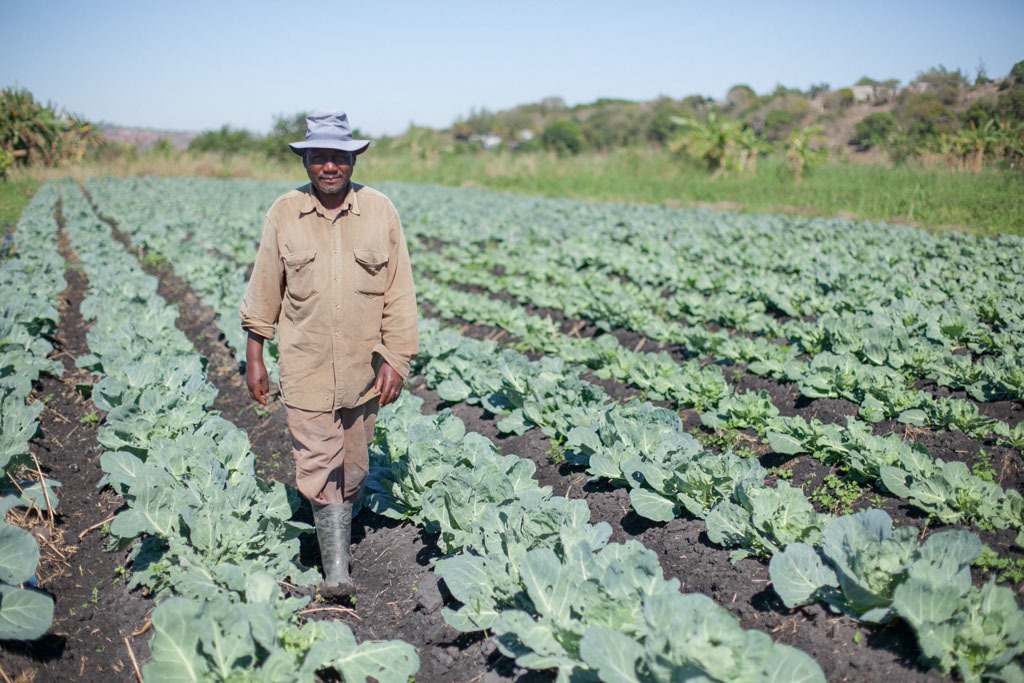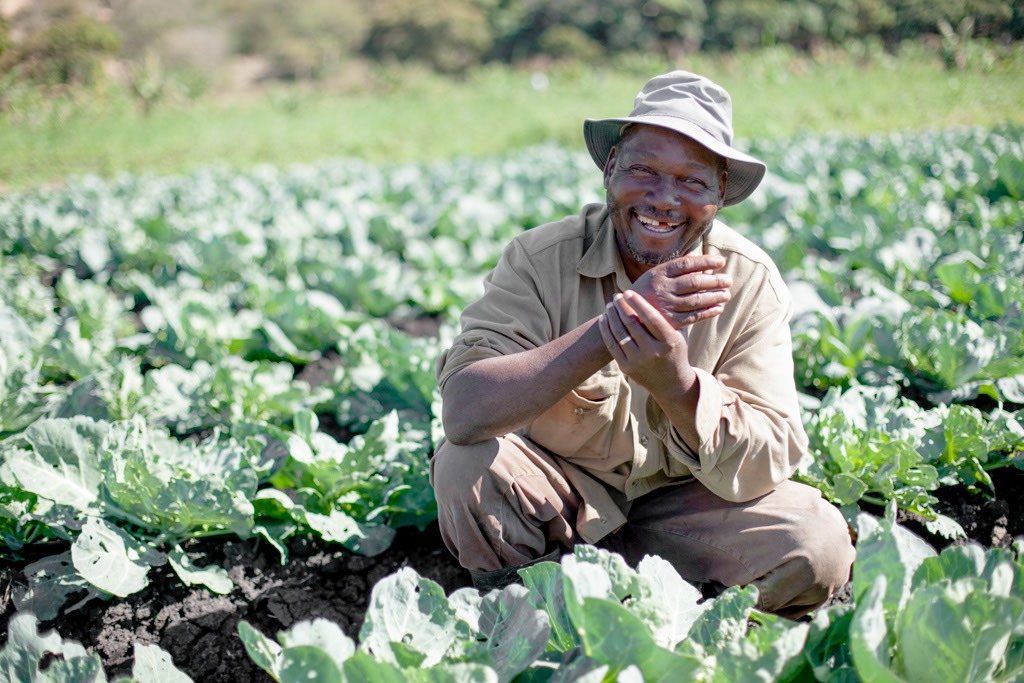
Viriato Mamite, a horticultural farmer in Mozambique’s Maracuene district, had a hectare of land, but couldn’t make full use of it. In 2014, he jumped at the chance to join a farmer field school through his producer organization, Bolaze B, which participated in the Livelihoods Empowerment and Development (LEAD) project, funded by BHP Billiton Sustainable Communities.
During the farmer field school, Viriato learned good agricultural practices and the benefits of using a drip irrigation system. Like many local farmers, Viriato saw the value of drip irrigation, but knew it was out of reach.
“Thanks to the trainings from the LEAD project, we had received knowledge about the drip irrigation system. But I had no chance of buying it.” –Viralto
Most Mozambican smallholder farmers don’t have a valid identification document or bank account. Many also lack the collateral needed to qualify for loans. This integral step often impedes local farmers—most of whom earn less than US$3.00 a day—from turning their subsistence farming into lucrative agribusinesses. Farming inputs, such as seeds, fertilizer, and irrigation kits, can also be costly.
Recognizing this stark reality, the LEAD project helped Viriato and others like him secure loans from Caixa Communitaria de Mozambique (CCOM), a local financial institution. The LEAD project, implemented by ACDI/VOCA, aims to improve the livelihoods of smallholder farmers like Viriato in Mozambique’s Boane, Marracuene, and Namaacha districts and Zona Verde in Maputo Province. To do so, the project facilitates the relationship between smallholder farmers and CCOM by offering trainings and technical assistance. This support helps farmers improve their production and business volume, while ensuring CCOM receives high repayment rates and returns on loans.
The partnership revived an important aspect of business for CCOM, said Delmar Mitavele, CCOM’s head of commercial and marketing area. “Our origins were linked with agricultural loans, but the high risk of these products caused a decrease in their volume within our company,” he said. “With this project, we have formed a triangular network between producers, LEAD project technicians, and CCOM, which has enabled us to strengthen confidence in the sector.”
CCOM provided credit to 77 farmers, 92 percent of whom successfully repaid the loans. To receive credit, these farmers collaborated with LEAD project technicians to build sound business proposals.









